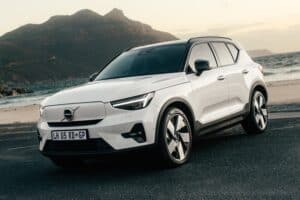Company alleges the EU is more interested in the banning of exhaust emissions than the overall vehicle environmental impact.

A German company involved in the development of synthetic fuels announced Monday it hoped to mount a legal challenge to European Union plans to ban the sale of combustion engine cars from 2035.
Contrived understanding
The rules would “slow down the development, production and use” of synthetic fuels designed to substitute for petrol or diesel “at the expense of climate change”, Classic Tankstellen said in a joint press release with its co-complainants.
Together the group filed an objection with the European court in Luxembourg in July. The technology behind synthetic fuels, still under development, consists of producing fuels from CO2 using low-carbon electricity.
Advocates say this means the fossil fuel substitute is not a net producer of emissions over its lifetime, but environmental groups have objected to the idea, which is deemed too expensive and energy-intensive.
The ban on combustion engine cars is a critical part of the EU’s push to be climate-neutral by 2050, with net-zero greenhouse gas emissions.
ALSO READ: Germany and EU sign deal keeping non-EVs beyond 2035
The stop was agreed by EU member states in March, after automotive powerhouse Germany held up approval to negotiate an exemption for synthetic fuels.
The legislation was unblocked after the European Commission agreed to work on a separate proposal to potentially allow the use of synthetic fuels, set to be approved by autumn 2024.
For the time being, the original text of the ban remains in place, prompting the legal complaint from German companies.
The group takes particular issue with the new regulations’ focus on tailpipe emissions, rather than the environmental impact of the car as a whole.
“CO2-neutral fuels offer the only way to include combustion engine vehicles, which will continue to represent a predominant part of the vehicle fleet in the long term, in climate protection efforts,” said Lorenz Kiene, CEO of Classic Tankstellen.
“No going back” for Nissan
In a related article, Nissan CEO Makoto Uchida said the automaker won’t be changing its policy on being a fully electric vehicle brand by 2030 in Europe following the UK government’s backtracking on the banning of combustion vehicle sales by said year.
Uchida’s pledge came just days after Prime Minister Rishi Sunak enraged green campaigners and the car industry by postponing a proposed ban on new petrol and diesel cars by five years from 2030 to 2035.
“More than a million customers have already joined our journey and experienced the fun of a Nissan electric vehicle. There is no turning back now” said Uchida.
The Japanese carmaker, a partner of France’s Renault, announced in February that it was speeding up its move towards electrification.
“With many countries debating when to ban sales of internal combustion engines, Nissan is pressing ahead with plans to achieve 100% EV in Europe by 2030,” it said.
All new models on the European mainland will be all-electric from that date, it added. Globally, the carmaker expects to launch 19 all-electric vehicles between now and the end of the current decade.
It also plans to introduce cobalt-free technology to reduce the cost of EV batteries by 65 percent from 2028.
British car manufacturing lobby group the SMMT last week said the UK government postponement had caused “confusion and uncertainty” in the sector.
NOW READ: Countries phasing out fossil fuel vehicles by 2035 revealed
Support Local Journalism
Add The Citizen as a Preferred Source on Google and follow us on Google News to see more of our trusted reporting in Google News and Top Stories.






